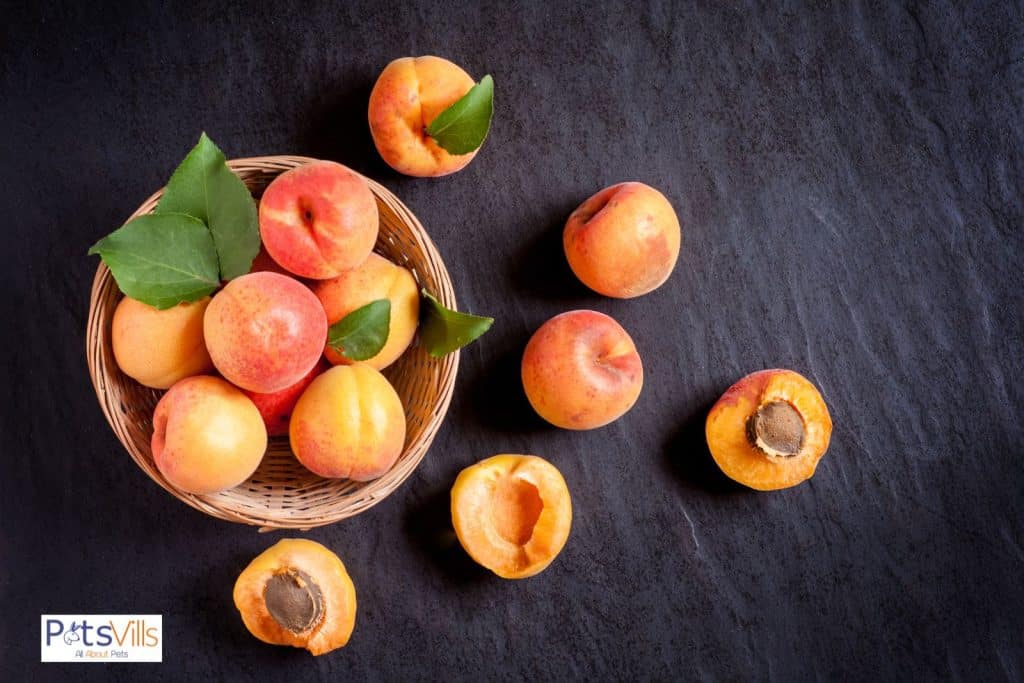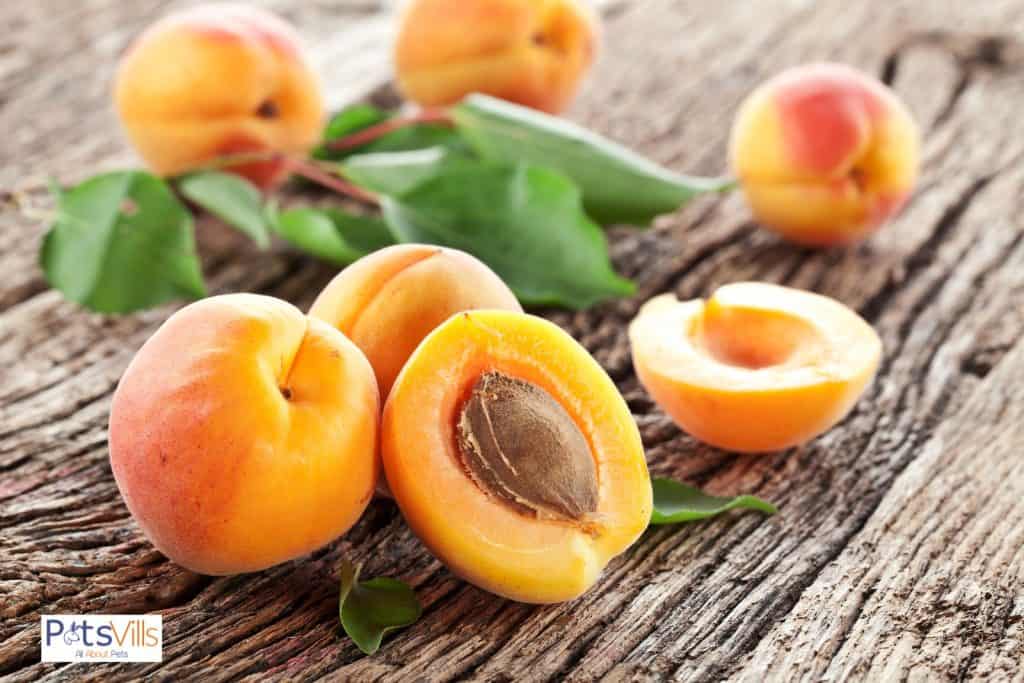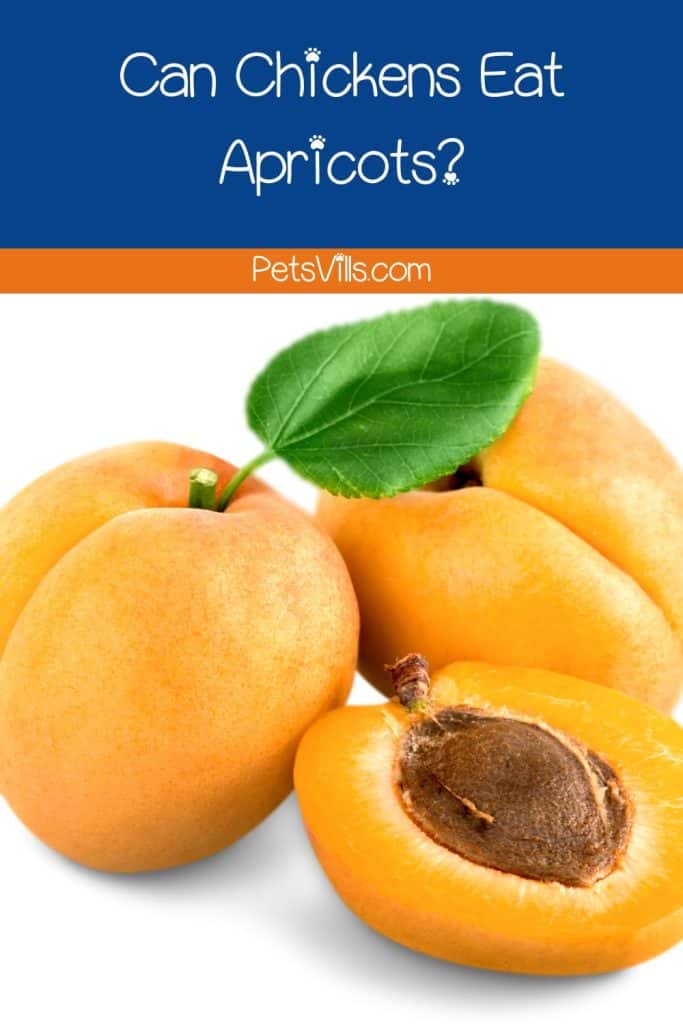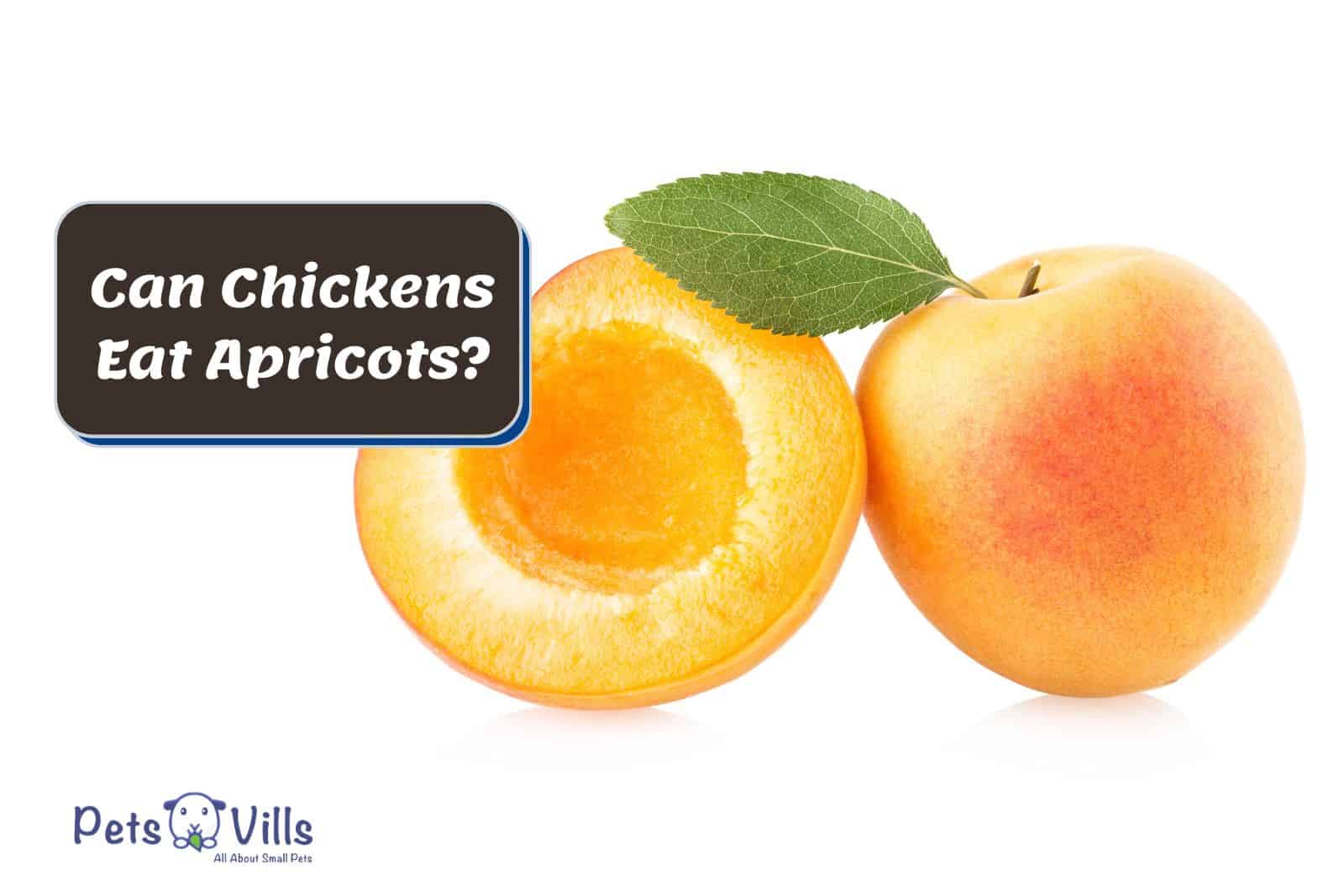If you’re a fruit lover, chances are you’ll want to slip some extra tasty treats for your feathered friends and might be thinking, can chickens eat apricots?
Although regular chicken feed has all the essential nutrients that will enable your chickens to lay around 250 eggs per annum, the occasional fresh fruit as a healthy snack to chickens in moderation is perfectly fine! (1)
Table of Contents
Key Takeaways
- Chickens can eat apricots in moderation.
- Apricots contain a range of vitamins and other beneficial substances.
- These include Vitamin E, C, K, B, and more.
- The fruit contains high water content even when dry.
- Chickens cannot eat the entire plant, only the fruit itself, without seed.
Read ahead to find out the health benefits and facts about these nutritious treats, including chickens’ nutritional requirements, the number of apricots and other fruit to feed them, and more!
Beneficial Nutrients Found in Apricots
One thing you’ll notice about almost all the fruits you try to feed your backyard chickens is that they are safe for them, as long as they’re given to them in moderate amounts.

Apricots are actually very low in calories, with around 70 gms or 2 apricots adding up to a total of 34 calories. (2) It also contains high water content, even when dry!
Here are a few facts about these healthy treats listed below.
Apricots Are Filled With Vitamins
If I start listing all the nutrients contained inside these healthy snacks, we’d be here all day!
Fresh apricots, and even dried ones, are such an excellent source of vitamins that you may want to keep some for yourself.
Here’s what you can expect from this seemingly tiny treat for chickens.
- Vitamin A: Apricots make for an excellent source of vitamin A. This can help improve your chickens’ eyesight and deals with the prevention of nighttime blindness.
But not just that, a lack of this vitamin could lead to severe health issues faced by your backyard flock, including bone development, reproduction, and overall growth. (3)
You can check for Vitamin A deficiency by observing feather issues, reduced appetite, and fatigue.
- Vitamin C: Believe it or not, Vitamin C will help combat “heat stress,” in your chickens. Heat stress usually occurs in high temperatures and humid areas.
It can lead to reduced immunity, appetite, egg production, and mortality. Vitamin C fights against heat stress by reducing these problems.
- Vitamin E: Flock owners know that this is one of the most important vitamins for keeping your chickens healthy.
Vitamin E combats immune deficiency and boosts the nervous, muscular, and circulatory systems. It also aids in egg production as well as fertility.
Moreover, it can help your flock fight the damage caused by E. coli.
You can reserve some apricots for chickens, especially because of the potassium content, which also aids in egg production and deals with heat stress.
Chickens need about 150 mg of potassium each day, which also helps maintain blood pressure and prevents the formation of kidney stones.
All in all, this healthy treat can resolve many issues for chickens.
Nutritious Fruits To Feed Your Chicken
Like I said before, almost all fruit constitutes good snacks for chickens, as long as you are mindful of sugar content, even if you’re thinking about natural sugars present in the fruit.
Here’s an interesting video about feeding your chickens:
Remember, fruit can contribute dietary fibers that can improve the digestive tract or generally combat digestive issues. However, be careful not to feed them every part of the fruit.
For instance, given your chicken’s apple seeds could prove to be fatal. This is because apple seeds contain amygdalin. (4)
Amygdalin converts into cyanogenic glycosides, which, after metabolization, turn into HCN or hydrogen cyanide, poisonous to humans and animals alike.
At the same time, cantaloupe seeds are perfectly edible for chickens! (5) So it’s really a matter of doing your research on the nutritional benefits of different nutritious snacks.
Now bear with me because I keep talking about seeds, but sunflower seeds can actually be an excellent source of Vitamin E.
I’ve compiled a list of fruits that make for some good sources of nutrients and can become yummy treats for chickens:
- Strawberries
- Watermelon
- Blueberries
- Grapes
- Oranges/Citrus fruits
- Cherries
- Bananas
- Pears
- Cantaloupe
- Peaches
However, one fruit you should avoid giving chickens is avocados.
Curious about feeding your chickens kiwi skins or mango? Check out our articles on “Can Chickens Eat Kiwi Skins” and “Mango for Chickens“. Packed with valuable insights and advice, these resources will help you make informed decisions about what to feed your feathered friends. Don’t miss out on these essential reads for every chicken owner looking to diversify their chickens’ diet!
How Much Apricot Is Okay For Chickens?
Apricots should be served as the occasional treat only in limited amounts.

It’s better to offer chickens as balanced a diet as possible. As responsible chicken owners, make sure the commercial chicken feed you’re using is pure and bought from trustworthy manufacturers or mills.
This is because some manufacturers or vendors will occasionally mix in lighter grain which will lead to malnutrition in your chickens, so beware.
Also, take into consideration some issues for chickens that will arise if you feed the wrong type of food to the wrong breed.
For instance, egg production is a priority in laying hens, which means the diet must contain sufficient calcium to increase egg production.
Always feed in moderation, which can be once every two weeks.
Mostly, however, your focus should be on providing good commercial feeds.
How To Prepare Apricots For Chickens
First, rinse and clean the fruit. Make sure you remove all other parts like apricot seeds and apricot leaves.
Make sure you’ve removed the skin so you don’t accidentally feed them toxic food because of pesticides or insecticides.
Cut them into itsy bitsy pieces and let them enjoy!
Frequently Asked Questions
1. Can chickens eat plums?
Chickens can eat plums, but like most fruit, not in larger amounts. This is because plums have three natural sugars, namely glucose, sucrose, and fructose, which may not form the most balanced nutritional content.
2. What scraps should chickens avoid?
You should never give your chickens green tomatoes or green potatoes.
3. Can chickens eat raw oatmeal?
Yes, oatmeal is nutrient-rich and contains many essential nutrients such as calcium, iron, copper, and zinc.
They can eat it both raw and cooked.
Conclusion
If you were wondering “”can chickens eat apricots””, you must have gotten your answer by now!
Enjoy sharing the occasional healthy treats with your feathered friends and if like me, you have an excess, make apricot jam!

References
1. Everyday Foods for Sharing with Your Backyard Chickens + Why – Treats for Chickens [Internet]. Treats for ChickensTM. [cited 2023 Jan 17]. Available from: https://treatsforchickens.com/blogs/treats-for-chickens-blog/everyday-foods-that-you-can-share-with-your-backyard-chickens#:~:text=Cantaloupe%20seeds%20are%20edible%20and
2. Taylor V. Can Chickens Eat Apples? Are Apple Seeds Safe? – Eco Peanut [Internet]. https://www.ecopeanut.com/. [cited 2023 Jan 17]. Available from: https://www.ecopeanut.com/can-chickens-eat-apples/#:~:text=them%20any%20apple.-
3. Importance of vitamin A supplementation for performance of Sonali chickens under smallholder farm conditions in a tropical climate [Internet]. www.lrrd.org. [cited 2023 Jan 17]. Available from: http://www.lrrd.org/lrrd16/10/bhui16083.htm#:~:text=Poultry%20are%20very
4. How Long Do Chickens Lay Eggs? [Internet]. Purina Animal Nutrition. Available from: https://www.purinamills.com/chicken-feed/education/detail/how-long-do-chickens-lay-eggs-goals-for-laying-hens#:~:text=Laying%20hens%3A%20How%20many%20eggs

My name is Ben Roberts, and I absolutely love animals. So, naturally, I love writing about them too! As far as my animals, I have a Pit-bull, a Beagle-lab mix, a Chihuahua, and one old cat. Each one of them provides me with a new adventure every day. And the best part is they’re all best friends. Well, except the cat when he gets a little annoyed.
FIND HIM ON: FACEBOOK and TWITTER.
Read his latest ARTICLES
Learn more about Benhere

